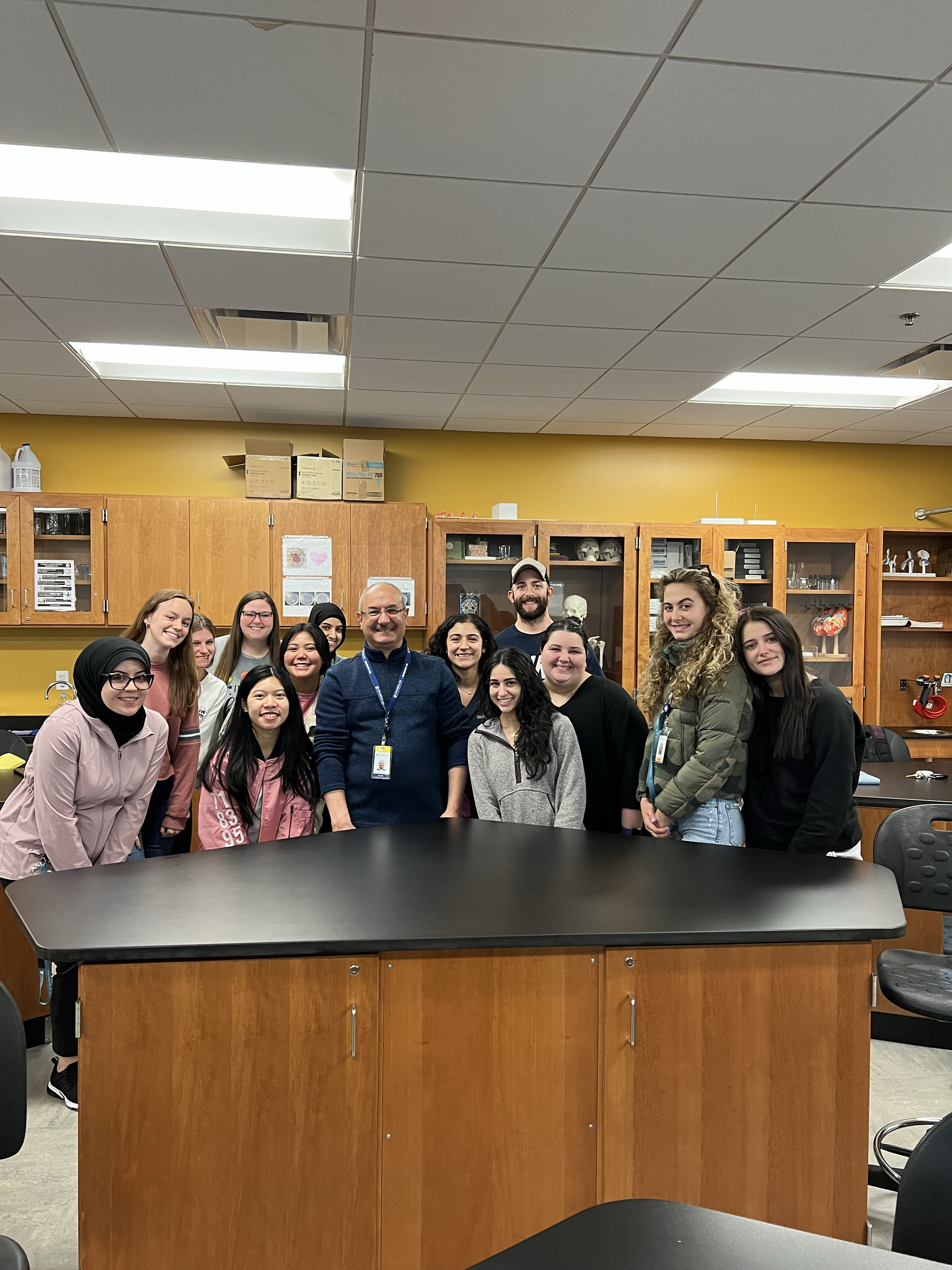A Micro Biography of Dr. Ashraf Hassaballa
Ashraf Hassaballa, MD, MSc, Ph.D., D(ABMLI) has been immersed in academia his entire life. He was born and raised in Egypt, on the campus of Assiut University, where his father was a Professor of Agriculture. As a result, he and his siblings had a love of learning instilled in them from their earliest years. As it turns out, his wife did, too. She grew up nearby on campus, and her father was also a member of the Department of Agriculture. With this family background, it is not surprising that Ashraf’s life has been devoted to acquiring knowledge and passing it on to others.
In high school, Ashraf loved Biology. In particular, he enjoyed lab work, so a career in medicine made sense to him. The school system in Egypt is set up differently than in the United States, and Ashraf was able to graduate from high school and enter directly into the Assiut University Faculty of Medicine, where he spent the next 8 years earning his bachelor’s degree in surgery and medicine (MD).
During his studies he realized his main interest centered on clinical pathology, so, following his medical degree, Ashraf went on to complete his residency in clinical pathology at the Assiut University Medical Center. As a requirement for graduation, he simultaneously received his master’s degree in clinical pathology and laboratory medicine, completing research on “evaluation of serum troponin-T as a new cardiac marker in cases of acute myocardial infarction.” Subsequently, he joined the faculty at the University as an assistant lecturer.
Ashraf’s original plan was to live and work as a physician in Egypt. However, his wife was accepted into a Physiology Ph.D. program in Nebraska and wanted to move to the United States. Ashraf agreed to move, with the thought that he would return home to practice medicine in Egypt afterwards, where his parents and siblings live with their families. Ashraf was accepted into Creighton University in Omaha, where he earned his Ph.D. in Medical Microbiology and Immunology, and he and his wife subsequently completed their postdoctoral fellowships at the University of Kansas. Along the way, they also had two beautiful children.
Following his postdoctoral work, Ashraf was appointed to an Assistant Professorship in the Department of Clinical Pathology at the Assiut University Faculty of Medicine. His medical interests there were focused on diagnostic immunology, flow cytometry, and serological and molecular diagnosis of infectious diseases. All combined, he has spent more than 12 years practicing medicine in Egypt where he was actively involved in patient care, research, resident education, and clinical training.
Although Ashraf would very much have liked to remain in Egypt permanently to be with his extended family, as he says, “We a democratic family, and I was outvoted.” His wife and two daughters all chose to stay in the United States. As a result, he moved with his family to Michigan in 2019. Ashraf joined the faculty of Oakland Community College and taught in the department of Life Sciences. He also held a Visiting Professor position at Chamberlain University College of Nursing in Troy, MI, where he was involved in teaching microbiology and immunology to nursing students.

Dr. Hassaballa in the classroom
Despite his extensive experience as a practicing physician, Ashraf considers himself, first and foremost, a teacher, and throughout his own education he has incorporated opportunities to teach whenever possible. When Ashraf learned about the innovative shared discovery curriculum of the MSU College of Human Medicine, he jumped at the chance to join the faculty. This new curriculum represents a radical departure from traditional medical education models because it focuses on the patients and is structured around case-based learning, ambulatory and inpatient clinical experiences, and large- and small-group discussions. Ashraf is currently teaching first and second-year medical students at the Grand Rapids, MI campus of MSU as part of their “Early Clinical Experience” class. As a teacher, Ashraf is continuing in his father’s footsteps. “What I enjoy most about teaching is the opportunity to work with students of all different backgrounds, ages, and ethnicities,” he says, and he is grateful for the wide variety of students he is able to teach here at MSU.
by Debbie Walton